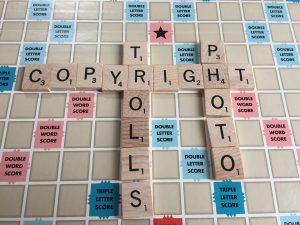901 Tower Drive • Suite 420 •
Troy, Michigan 48098
• P: 248.269.1122 •
E: bianchipr@bianchipr.com
901 Tower Drive • Suite 420 •
Troy, Michigan 48098
• P: 248.269.1122 •
E: bianchipr@bianchipr.com
(We are not a law firm and we do not offer legal advice. But we offer this warning …)
If you search the web for “free” stock photos to use in your blogs, newsletters or websites, read the terms of use very carefully and follow the requirements to the letter … or else risk the threat of a lawsuit.
Our research showed that while there are many legitimate stock photo websites, there has also been a proliferation of websites that appear to have created a cottage industry (and new revenue stream) for some law firms – aimed at generating quick copyright infringement settlements from naïve or unsophisticated photo users who unintentionally violate attribution requirements.
The photos on these sites are often policed by online bots to find any potential “offenses”, with bots generating potential targets for those law firms that are sometimes referred to as “copyright trolls” (see a related Law360 article at https://www.law360.com/articles/612235/don-t-underestimate-the-copyright-trolls).
So, to save yourself some time, trouble and money, be very careful when downloading any images from the “free” photo websites … and make sure your team follows all specific attribution and use requirements.
Or, rather than going the “free” image route, you may want to turn to the major stock photo houses and pay a few bucks for licensed use of their images.
BUT, even if you pay to use the photos from some of the better-known stock photo houses, double-check the attribution and use requirements carefully.
Otherwise, you may find yourself threatened over a violation for what you might consider a minor issue – such as having more than one person in your company use the stock photo account without a site license. There may be a lot of surprises buried in the fine print of the terms of use.
For more eye-opening reading on customer complaints, suspicious firms, and other photo copyright horror stories, Google the terms: copyright trolls, extortion letters, shakedown letters.
Make sure to consult an attorney for professional legal advice around this issue.